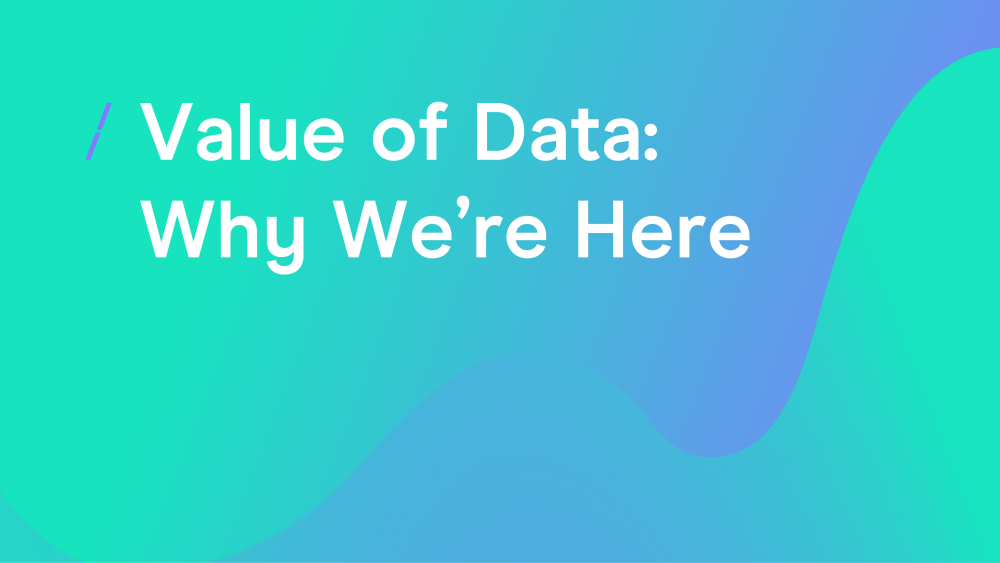Value of Data: Why We're Here
18 May 2019

An initiative born in Scotland, the DMA joins forces with partners and advocates as we seek to reshape the understanding of the true worth of information. Craig Paterson of The Data Lab offers this overview of an exciting new project.
Scotland is renowned for lots of things.
For a small country, we really punch above our weight.
We gave the world Alexander Graham Bell, inventor of the telephone, without whom we might not have the internet and smartphones. We distil the world's leading whisky brands, the starting point for many a good night out. And we lit up the 1978 World Cup with Archie Gemmill's goal of a lifetime against the Netherlands.
There's plenty more.
But there's one thing that hasn't quite made the list yet, and I want us to change that. I want Scotland to be famous for data.
Even my young daughter knows how passionate I am about this. It's become a mission, not just for me but for The Data Lab as a whole; DMA Scotland which has unveiled its wonderful campaign to shine a light on data's true value; and the entire data community north of the border.
I believe the time is right for organisations to be pinpointing the value of data, not just here but throughout the rest of the UK and across the globe. Scotland's part in that is obvious. We're already blessed with a vibrant data and tech hub. Some of the world's biggest brands have chosen to put down roots here. Government grants help fledgling businesses to thrive. And we've got one of the best partnerships between education and commerce that you'll find anywhere.
What we witnessed at DataFest 18 was a meeting of minds.
There was intense debate, some of it fashioned into a "data death match" where I enjoyed sparring with Firas Khnaisser - chairman of the value of data fringe event organiser DMA Scotland - around a series of data dilemmas. Crucially, there was also much audience participation.
With my analytical hat on, I admit to being sceptical before the event about whether we could ever find a place on the balance sheet for data. But I left thinking the complete opposite. Data is a virtual asset that can be used for multiple, profitable reasons at the same time.
For me, that value can be poured into three pots. Better decision making, improving your operational model or monetising your data. Viewed like that, data's value becomes less subjective and much clearer.
It's now up to us all to finish what we've started. We need to continue the conversation, but always with the end objective in mind: finding and flaunting data's value in all organisations. It's easy to do in a close-knit industry like Scotland's. You can almost get your arms around the sector, so we can make achievements quickly and at scale.
One of the great joys for me is seeing academia and industry work in harmony. Our universities feed industry with the brightest young minds, and in return those graduates are given a shot at a burgeoning career. Through The Data Lab's internship programme, we match students with organisations that have a particular problem. They work on an achievable and meaningful project for a few months. Our universities become more commercially savvy, students get ready for work and businesses get to "try before they buy".
Organisations might come here for the grants but they stay because of the supportive community where everyone helps each other out. We must always move forward, so we have strict performance indicators: creating high-value jobs with social and economic benefits. It's about using data for an outcome, not just for the sake of it.
If we can put data on the balance sheet people would appreciate it more and begin to look after it. We'd see real behaviour change. So let's keep the promise I've made to myself and my daughter.
Let's continue on the path we've chosen, and make Scotland famous for data.
Craig Paterson, Executive education advisor, The Data Lab
To read an more about the Value of Data project, click here.
Please login to comment.
Comments